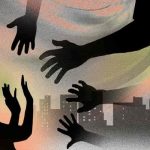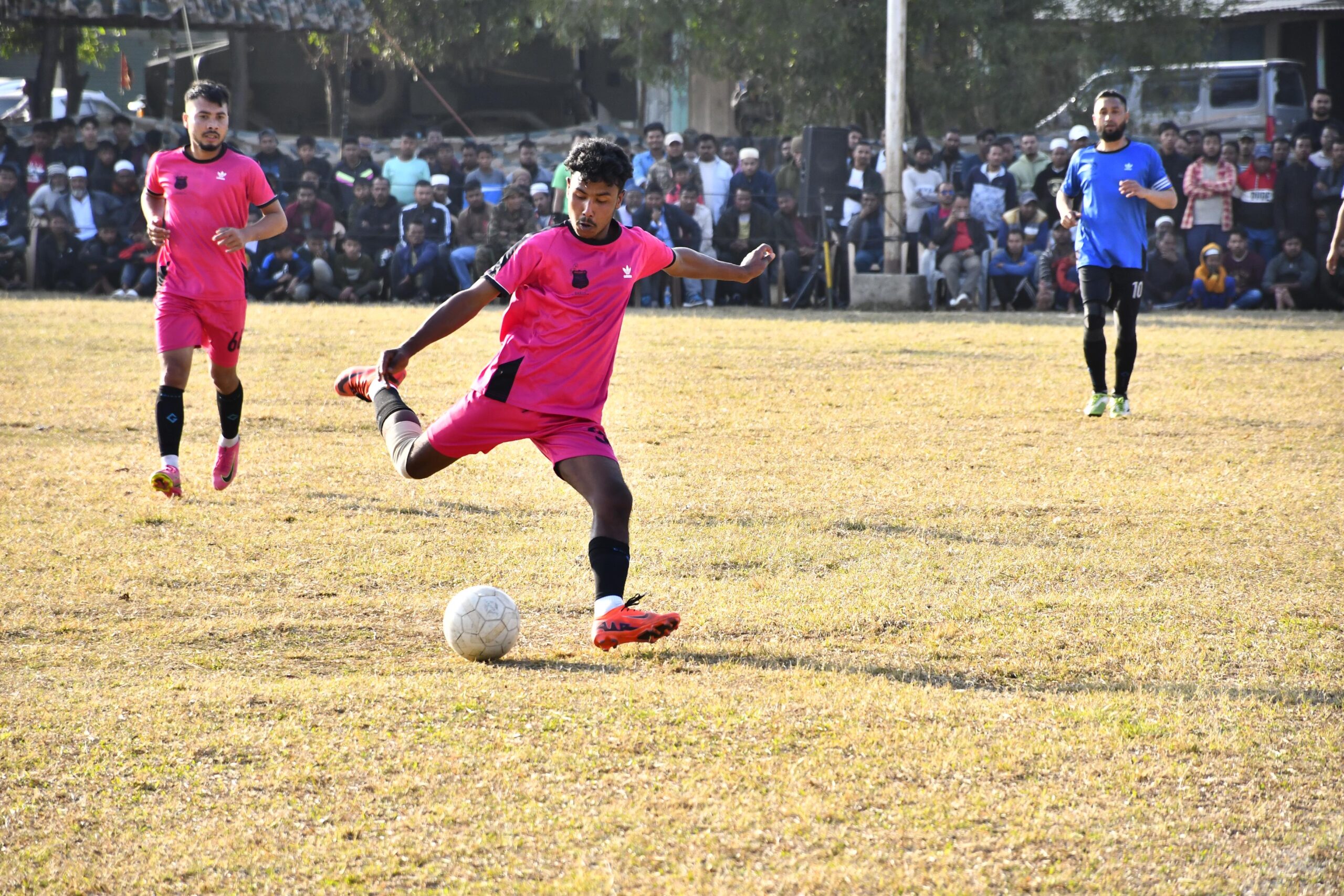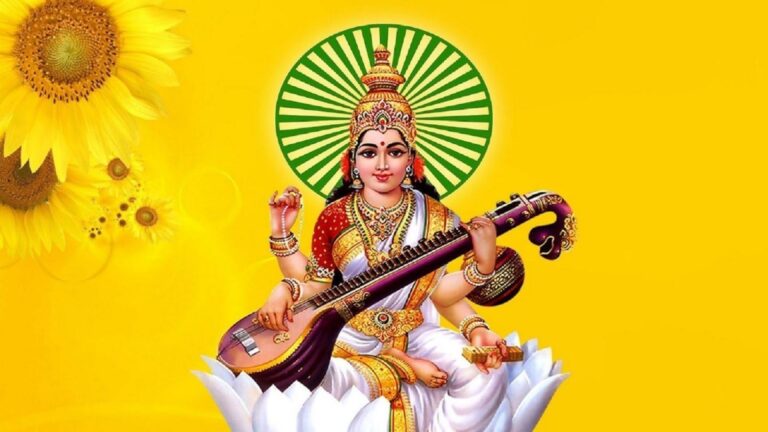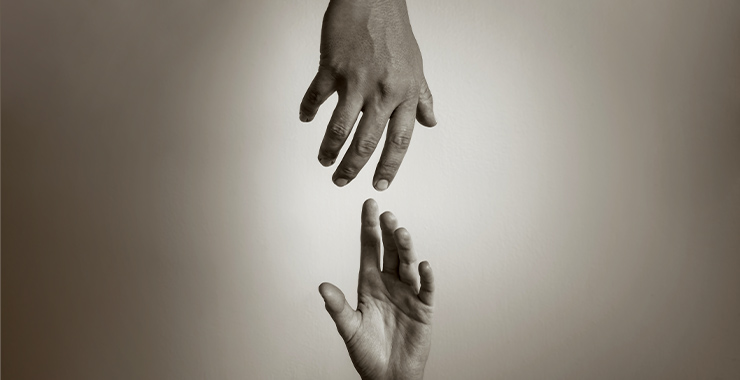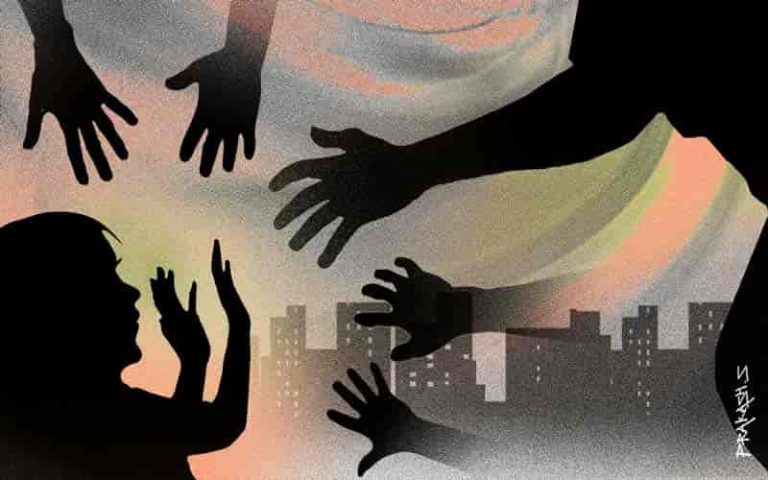A suicide bomber driving a car packed with explosives rammed a bus carrying Central Reserve Police Force (CRPF) troops, part of a large paramilitary convoy, on the Jammu-Srinagar highway on Thursday, was feared to have killed at least44 men while reducing the vehicle to a mangled heap of metal, in the deadliest terror attack in three decades of insurgency — one, which many experts said, would evoke a strong response from India.
At least 20 more were injured in the attack in the Awantipora area of Pulwama district. Terror outfit Jaish-e-Mohammad, which Indian authorities say is backed by Pakistan, claimed responsibility for the attack that took place in Lethpora, about 30 km from Srinagar. While the police put the official death toll at 33, security officials in Srinagar and New Delhi said at least 44 people had died.
Jaish said the suicide bombing was carried out by a local militant whom it identified as Adil Ahmad Dar of Pulwama.He joined the Jaish in 2018, PTI cited unnamed officials as saying. The Jaish claimed in a statement that the vehicle was carrying 350 kg of explosives, which Indian authorities did not confirm.
“Attack on CRPF personnel in Pulwama is despicable. I strongly condemn this dastardly attack,” PM Narendra Modi said in a statement as political parties denounced the attack in unison. “Sacrifices of our brave security personnel shall not go in vain. The entire nation stands shoulder to shoulder with the families of the brave martyrs. May the injured recover quickly.”
Congress president Rahul Gandhi wrote on Twitter: “I’m deeply disturbed by the cowardly attack on a #CRPF convoy in J&K in which many of our brave CRPF men have been martyred and a large number wounded, some critically.” In a tweet, party spokesperson Randeep Surjewala charged the Modi government with compromising national security and said terror attacks had taken place unabated under it.
The attack may ratchet up tensions between India and Pakistan. Jammu and Kashmir governor Satya Pal Malik said the fact that Jaish owned up to carrying out the attack indicated that Pakistan may have had a hand in it. Minister of state in the Prime Minister’s Office, Jitender Singh, told television channels that the attack had led to a “war- like” situation.
“This is a bigger attack than Uri. Unlike the Uri attack, a Pakistan-based terror group has claimed responsibility There will be much more pressure on Pakistan, but my hunch is, because a Pakistan-based group has claimed responsibility, New Delhi too, will have to act. The form and shape of the retaliation will be the government’s prerogative,” said General DS Hooda, former Northern Army commander.
The ministry of external affairs, while condemning the “heinous and despicable act perpetrated by Jaish-e-Mohammed, a Pakistan-based and supported terrorist organisation proscribed by the United Nations and other countries” called for its chief Masood Azhar to be listed as a designated terrorist under the sanctions committee of the UN Security Council.
The security establishments at the Centre and in the state, which is under federal rule, were huddled in meetings to take stock of the situation following the attack that precedes general elections, likely to be held simultaneously with state elections, in the spring of 2019. National security adviser Ajit Doval was monitoring the situation and senior CRPF officials were briefing him.
The Cabinet committee on security affairs, chaired by the Prime Minister, is to meet on Friday to decide on and articulate India’s response. Home minister Rajnath Singh will be visiting Srinagar on Friday to assess the situation.
Thursday’s attack was the deadliest since insurgency broke out in Jammu and Kashmir in 1989. In the previous worst terror strike, 38 people were killed in a car bomb attack in Srinagar near the legislative assembly in October 2001.
In September 2016, four terrorists attacked an Indian Army brigade headquarters in Uri, near the Line of Control (LoC) with Pakistan, killing 19 army personnel.That attack was the spark for a retaliatory surgical strike on terrorist camps across the LoC by Indian forces just days later.
Near the town of Kaluchak in 2002, three militants attacked a tourist bus from Himachal Pradesh and killed seven people after which they raided the nearby army family quarters and shot 23 people to death — 10 children, eight women and five soldiers.
According to some accounts, in Thursday’s attack, the driver of the car positioned himself in the opposite direction on a lane next to the one on which the CRPF convoy was travelling on, and swerved and rammed the CRPF bus when he noticed the unarmoured vehicle.
CRPF’s inspector general (operations) Zulfiqar Hassan said the Jammu and Kashmir police had taken over the investigation of the terror attack “There were around 78 vehicles in the convoy and one of the vehicles came under attack. The convoy was on its way from Jammu to Srinagar,” he said.
The CRPF convoy of around 2,500 troopers left the Channi Rama transit camp in Jammu around 3:30am and was headed to the Bakshi Stadium camp in Srinagar when the vehicle was attacked, said Jammu-based CRPF spokesman Ashish Kumar Jha. From Bakshi Stadium, they were to have travelled to their respective camps.
Over the past week, no CRPF envoy had been able to travel on the highway because it had been blocked by snow, Jha said. “Therefore, the number of the CRPF jawans [in the convoy] swelled. The incident happened around 3.15pm,” he said.
When asked if there had been a security lapse, he said, “A thorough probe will be conducted but such a large convoy is visible from a distance itself. CRPF jawans belonged to different battalions. Points of halt and resuming journey of such convoys are always fixed”.
International governments, and national and regional political parties condemned the attack.
“The U.S. Mission in India strongly condemns today’s terrorist attack in Jammu & Kashmir. We send our heartfelt condolences to the families of the victims. The United States stands alongside India in confronting terror and defeating it,” the US ambassador to India Ken Juster tweeted.
The French government also “condemned in the strongest terms the vile attack” that struck India. Sri Lanka and Maldives, too, expressed support after Thursday’s attack.
In a message, Bangladesh PM Sheikh Hasina said: “Bangladesh remains steadfast in its commitment against terrorism of all forms and manifestations and maintains a zero tolerance policy against any kind of terrorist activities.”
Home minister Rajnath Singh said: “Today’s dastardly attack on CRPF in Pulwama is extremely painful and disturbing. I bow to each and every CRPF jawan who has sacrificed his life in service to the nation. I pray for the speedy recovery of the injured.”
His colleague Arun Jaitley tweeted: “Terrorists will be given an unforgettable lesson for their heinous act.”
Congress president Rahul Gandhi’s sister , Priyanka Gandhi Vadra, who joined active politics last month,said in Lucknow: “We demand that this government take concrete steps to ensure such terror attacks don’t happen in the future.”
Former Jammu and Kashmir chief minister and National Conference leader Omar Abdullah said the attack was reminiscent of pre-2004 days in the Valley. “Jaish has claimed the blast as a suicide [fidaeen] attack reminiscent of the dark days of militancy pre-2004-05,” Abdullah wrote on Twitter, adding, “I condemn this attack in the strongest possible terms. My prayers for the injured & condolences to the families of the bereaved.”
Peoples Democratic Party chief and former J&K chief minister Mehbooba Mufti said: “No words are enough to condemn the gruesome terror attack. How many more lives will be snuffed out before this madness ends?”

